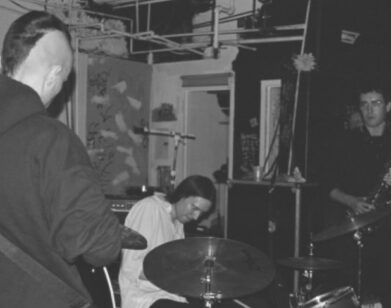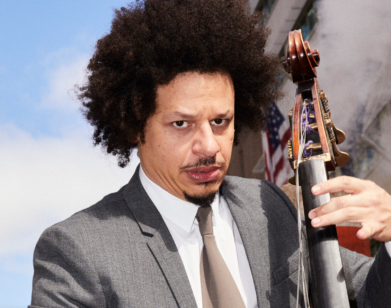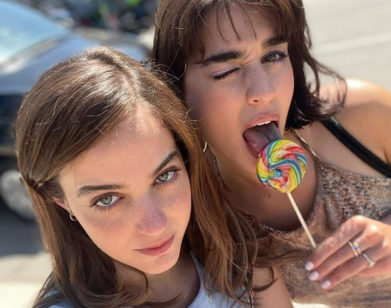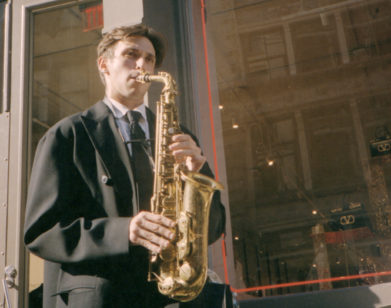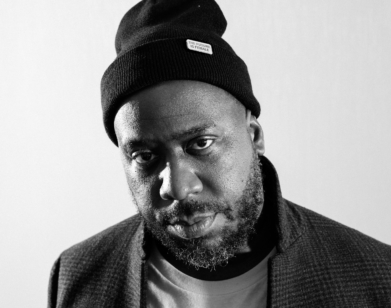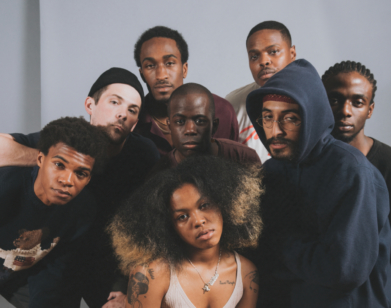Steve McQueen Gives Saxophonist Braxton Cook a Pep Talk for the Movies — without a Camera in Sight
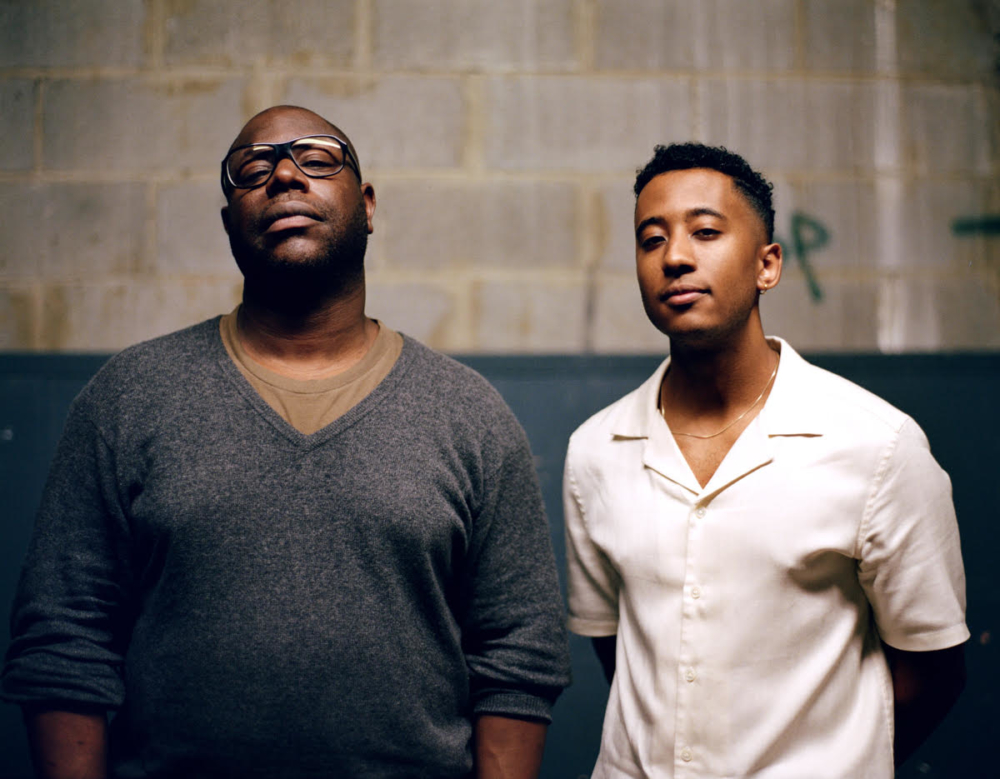
“Typical director,” Steve McQueen says, imitating himself. “Shut the fuck up, and let’s go.” The director has just directed myself and the saxophonist Braxton Cook out of a squalid and muggy portrait studio, into a barren storage room where the temperatures are tolerable and the lights are on. At 49-years-old, McQueen would be an imposing presence in our close quarters even without his Academy Award, his knighthood, his nearly perfect filmography, or the fact that he’s just directed a five-night string of musical performances with the stated goal of telling the story of black music in America — in other words, the history of popular music as we know it. The series, titled “Soundtrack of America,” put McQueen in collaboration with the legendary Quincy Jones and a legion of black musicians such as Cook, Moses Sumney, Kelsey Lu, and serpentwithfeet — some of the most visionary musicians of the moment. The performances, which came to a close this week at New York’s newest performing arts center, The Shed, were firsts for McQueen. Yet, for someone who’s made a career extracting legendary performances from the likes of Michael Fassbinder and Lupita Nyong’o, it was a simple continuation of the role McQueen does best: orchestrating great moments. Here, McQueen and the younger Cook discuss some tangibles (such as the musicians they admire and the origin of rock and roll) along with some intangibles (what music is and what it isn’t), plus a moment of no-nonsense motivation. It was far from typical, yet so very McQueen.
———
NATHAN TAYLOR PEMBERTON: Did either of you pass any particular songs back and forth leading up to the performances? Were there certain artists that you bonded over?
STEVE MCQUEEN: Once, Braxton came here and talked about Coltrane. And, it’s interesting, everyone I know can remember when they listened to “A Love Supreme” for the first time. Just putting that record on — it was like tidal waves washing over me. It was just amazing. So when he came in and said that, I just knew. That was it. I told him, “Go for it. Tell your truth.” Trayvon Martin was another source. And again, I thought, “Tell your truth.” It was always going to get heavy because we’re talking about the truth.
BRAXTON COOK: Wow.
PEMBERTON: Braxton, if you could share any song with Steve, right now, what would it be?
COOK: Oh, man. God, it’s funny, but I think what Phony Ppl are doing is really, really incredible. It’s not my music. They’re a genre-bending group out of New York, all black kids that are self-taught musicians infusing hip-hop, jazz. The band leader is one of the most charismatic dudes I know. He can just connect with people our age. It’s something I want to be part of because it just feels like now.
PEMBERTON: Any songs you’d share with Braxton, Steve?
MCQUEEN: I don’t know what I could share with him that he doesn’t know already. A good question. It’s not musical. His voice is emerging, is emerged. I always think about Miles Davis. I always feel like Miles Davis. I’m always thinking about him. As an artist, he was never satisfied with what he did before. After he’d done it, he moved on. He was always trying to break new ground. As an artist, as a filmmaker, that’s what I love, the idea of not settling for “Oh, do that again. The same movie you did last time, do it again.” It’s an important thing for an artist to do, otherwise you start hurting yourself.

PEMBERTON: Is music the most primal creative form? You’re both so expressive in your respective disciplines, but are you able to articulate what music is?
COOK: There’s the cheesy answer: “It’s the universal language.” But I think there’s something to the fact we can project emotions onto sound. We can project story and narrative on sound. We don’t need to spell everything out with music. I like that. People will hear a song, and it’ll remind them of their father, their mother, their family. Like, I didn’t even have to say that. You know?
MCQUEEN: It’s one of those art forms, the only art form that I know of, that can penetrate people’s barriers. It just captures you, unaware sometimes. It’s like vapor. It has no form. It transcends, transforms environments. Damn. I mean, an art work that can transform an environment. What else does that? I make pictures, movies and artwork. But there are limitations with a screen, this bloody thing with this square. Sound just does something. It can be so familiar but, at the same time, unrecognizable, or it can be so recognizable but unfamiliar. It’s like, “I know that, I know it.” It’s amazing.
PEMBERTON: In blunter and broader terms, what is the soundtrack of America?
MCQUEEN: It’s black truth.
COOK: It’s black music.
MCQUEEN: When I made 12 Years a Slave in New Orleans, I couldn’t find any institution of significance to go find where the roots of jazz came from. Then I went to Chicago to make Widows, and I couldn’t find any sort of institution to learn about black music in Chicago. This is the birthplace of rock ‘n’ roll, basically. These are the birthplaces of popular music. Now, if that music happened to be created in Europe, there would be Taj Mahals built in its honor. Your ears wouldn’t stop bleeding from people telling you, “It happened here.” Look at the walls in this studio. [McQueen gestures around the room.] Every other poster is of this white British guy. And I’m thinking, Jesus.
COOK: He’s saying some real shit. That’s exactly it.
MCQUEEN: Even Hendrix, he had to go to England before he would be appreciated. There’s a certain kind of racism, which is so deafening and so palpable, that people are so blind to. They don’t want to see it. It’s important to give this music its proper setting.
COOK: We have a fingerprint on every style of music. Even rock ‘n’ roll. Everything.
MCQUEEN: The first rock ‘n’ roll record was recorded by Ike Turner! Was it “Rocket 88”?
COOK: Yeah.
MCQUEEN: It’s not even about ownership, it’s about appreciation. You go, “Well, okay, fuck, I don’t give a shit about ownership.” It’s about appreciation. For me, as a person coming here, looking around, there isn’t enough. Like I said, if this black music was invented in Europe, you wouldn’t hear the last of it.
COOK: Part of that is acknowledgement. That’s from that movement of “A Love Supreme.” Acknowledgement. We don’t even acknowledge that. We just move past it. And then you get focused on popularity and that. It’s all backwards.
MCQUEEN: Don’t forget that the reviews of that record, when it first came out, were not great.
COOK: Right, just a complete detour. Our story is very seldom told by the creators themselves, unfortunately, because we don’t control a lot of media and outlets. We make the art and then we succumb to that lifestyle. We don’t own our stories.
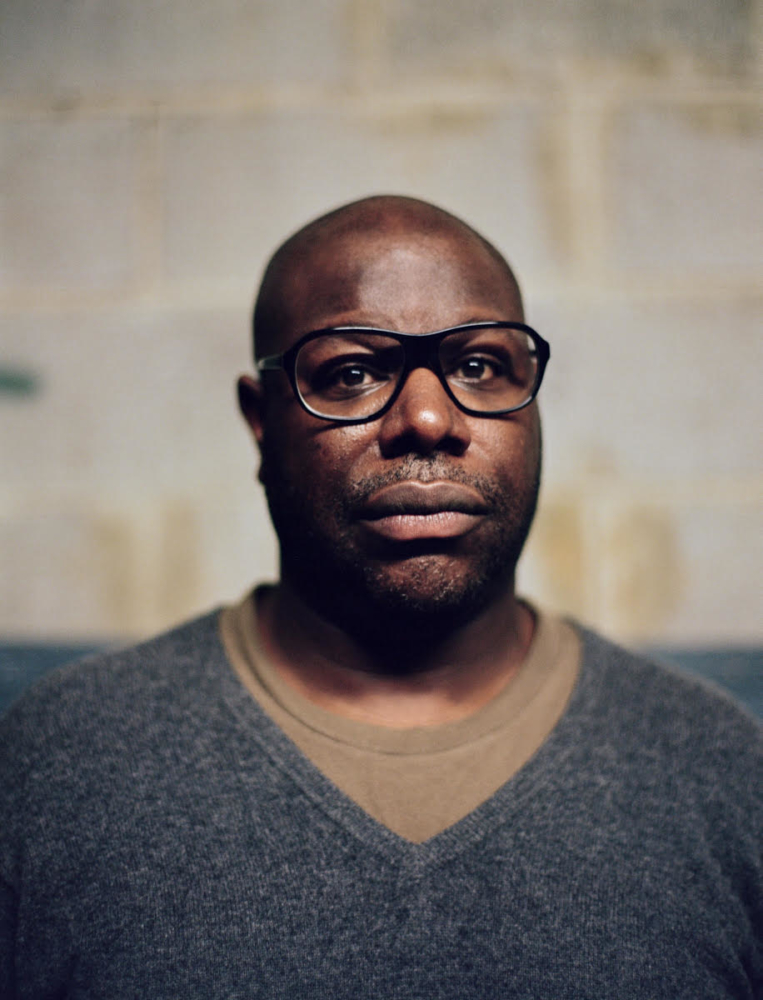
PEMBERTON: And here you’ve chosen to tell the entire story.
MCQUEEN: It’s just about celebration. You can bang on about what should be, the way it should be, and the way it isn’t — but we just keep on going on. We keep on making music. We keep on exploring, and looking forward and trying to get somewhere. This is the greatest art form that this country has ever produced. It’s the greatest art form, and it was invented in America. It’s influenced politicians. It’s influenced people’s lifestyles. It’s influenced people’s philosophy on life and food, even. It’s come from this country, and it should be given its rightful position in the world. It’s kind of crazy. It’s spiritual.
COOK: That’s real. It’s exciting to celebrate this, to see this line-up. All these incredible young black folk pushing this music. They’re creating and stretching the boundaries of it. It’s alive.
PEMBERTON: Beyond pure celebration, what are you hoping to trigger with these performances?
MCQUEEN: I’m interested in people losing themselves. I’m interested in people taking the opportunity to just go for it. You’re going to die anyway. We all are anyway, so you might as well go for it. You as a writer. You’re a musician. [McQueen points at Cook and Pemberton.] Tomorrow, you might even get there and say, “I’ll just try this. I’ll do a little bit of this.” During rehearsal, I loved when people just went for it because they could get hit by a bus tomorrow. You guys are young in that sense, and I think it’s up to you as an artist and you as a writer to go for it. What have you got to lose? This is it. You can’t be, “Oh, yeah, I’ll do it in five years’ time.” Fuck that. Do it now.
PEMBERTON: I love this intensity.
COOK: How can you not be inspired?

